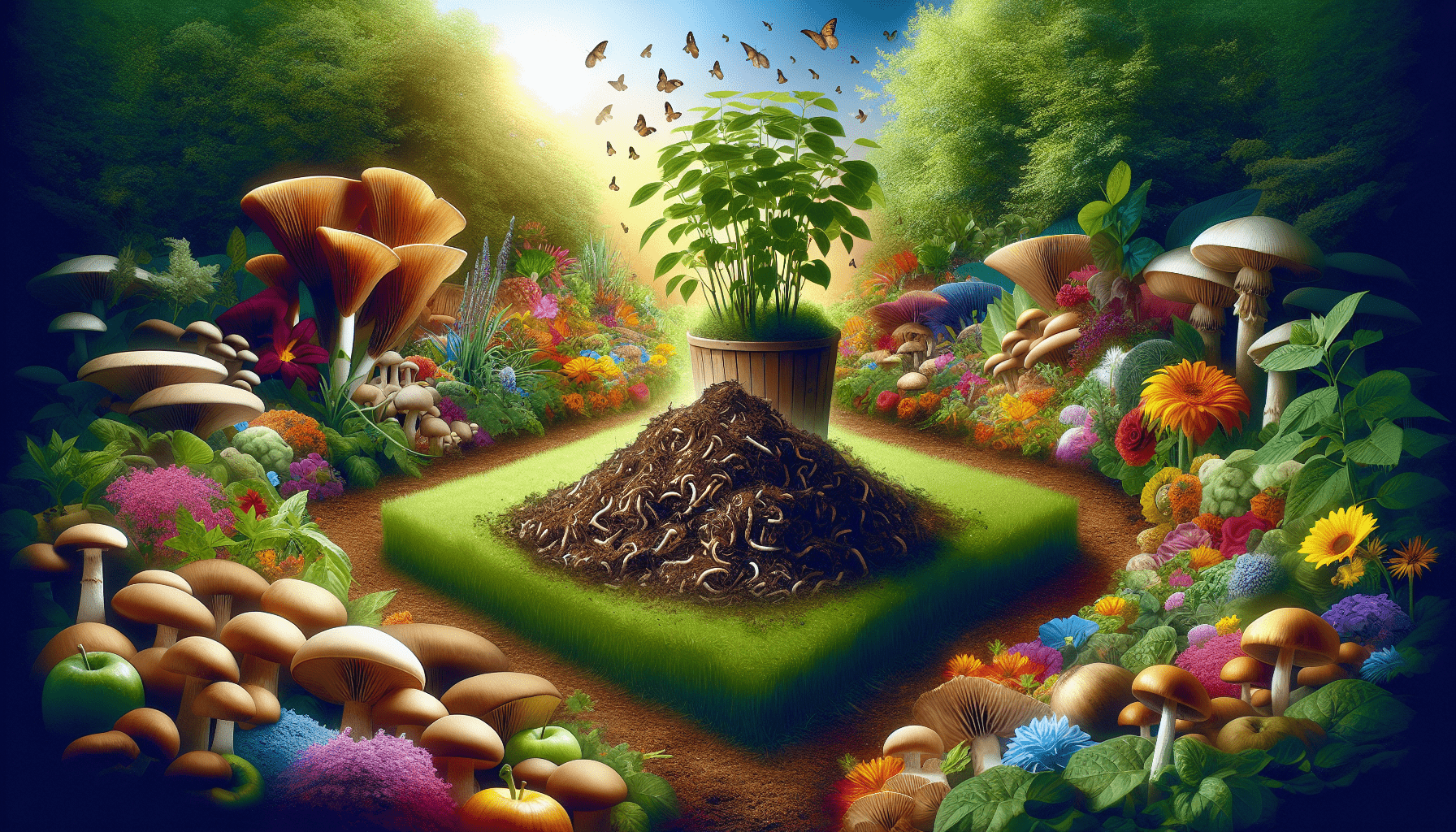Does Mushroom Compost Contain Any Chemicals?
Have you ever wondered if the mushroom compost you use in your garden contains any chemicals? It’s essential to know what goes into your soil to ensure healthy plant growth. In this article, we will explore whether mushroom compost contains any chemicals and how it can impact your garden. Let’s dive in and find out more!
What is Mushroom Compost?
Mushroom compost, also known as spent mushroom substrate, is a byproduct of the mushroom growing process. It is made up of a mixture of materials that are used to grow mushrooms, such as straw, manure, gypsum, and other organic matter. This mixture provides an ideal environment for mushroom growth, but once the mushrooms are harvested, the leftover material becomes compost.
The Process of Making Mushroom Compost
The process of making mushroom compost begins with mixing together different ingredients like straw, manure, gypsum, and other organic materials. This mixture is then pasteurized to eliminate any harmful pathogens that may be present. After pasteurization, the substrate is inoculated with mushroom spawn and allowed to colonize. Once the mushrooms have been harvested, the leftover material is composted to create mushroom compost.

Learn about mushroom composting
Chemical Composition of Mushroom Compost
Now that we understand what mushroom compost is let’s take a closer look at its chemical composition. Mushroom compost is rich in nutrients like nitrogen, phosphorus, and potassium, making it an excellent fertilizer for plants. However, it is essential to consider whether any chemicals are present in the compost that could potentially harm your plants or the environment.
Natural vs. Synthetic Chemicals
When it comes to chemicals in mushroom compost, it’s crucial to distinguish between natural and synthetic chemicals. Natural chemicals, like those found in organic matter, are derived from natural sources and are generally safe for plants and the environment. On the other hand, synthetic chemicals are man-made and may have harmful effects if used excessively.
Chemical Residues in Mushroom Compost
While mushroom compost is primarily made up of natural ingredients, there is a possibility that chemical residues may be present. These residues can come from the materials used to grow mushrooms, such as pesticides or fungicides. It’s essential to know where your mushroom compost comes from and how it was produced to determine if any chemical residues are present.
Laboratory Testing for Chemicals
To ensure that your mushroom compost is free of harmful chemicals, consider sending a sample to a laboratory for testing. Lab testing can identify any residues of pesticides, fungicides, heavy metals, or other harmful substances that may be present in the compost. This information can help you make an informed decision about using the compost in your garden.

Impact of Chemicals in Mushroom Compost
Now that we’ve discussed the potential presence of chemicals in mushroom compost, let’s consider how these chemicals can impact your garden and plants. Understanding the effects of chemicals in compost is essential for maintaining the health of your soil and plants.
Soil Health
Chemicals in mushroom compost can have both positive and negative effects on soil health. While nutrients like nitrogen, phosphorus, and potassium are beneficial for plant growth, excessive chemical residues can harm beneficial soil microbes and organisms. It’s essential to strike a balance between providing nutrients and avoiding harmful chemicals in your soil.
Plant Growth
Chemicals in mushroom compost can also affect plant growth and development. While organic nutrients can promote healthy growth, chemical residues can inhibit root development and nutrient uptake in plants. It’s crucial to be mindful of the chemical composition of your compost to ensure optimal plant growth and overall plant health.
Environmental Impact
The presence of chemicals in mushroom compost can also have environmental implications. Chemical residues can leach into the soil and water, potentially harming local ecosystems and wildlife. By understanding the chemical composition of your compost, you can minimize the environmental impact and promote sustainable gardening practices.

Choosing Chemical-Free Mushroom Compost
If you’re concerned about chemicals in mushroom compost, there are steps you can take to ensure you’re using a chemical-free product. By selecting compost that is certified organic or has undergone lab testing for harmful substances, you can minimize the risk of exposing your plants and soil to chemicals.
Organic Certification
Look for mushroom compost that is certified organic by a reputable organization. Organic certification ensures that the compost meets strict standards for chemical inputs and has been produced using sustainable practices. By choosing organic compost, you can be confident that you’re using a chemical-free product in your garden.
Lab-Tested Compost
Consider sending a sample of your mushroom compost to a laboratory for testing to determine its chemical composition. Lab testing can identify any residues of pesticides, fungicides, heavy metals, or other harmful substances that may be present in the compost. This information can help you make an informed decision about using the compost in your garden.
DIY Mushroom Compost
If you’re concerned about the chemicals in commercially-produced mushroom compost, you can also consider making your own compost at home. By using organic materials like kitchen scraps, leaves, and yard waste, you can create a chemical-free compost that is tailored to your plants’ needs. Homemade compost is a cost-effective and sustainable option for promoting healthy plant growth.

Conclusion
In conclusion, mushroom compost can contain chemicals, either natural or synthetic, that may impact your garden and plants. Understanding the chemical composition of your compost is essential for promoting soil health, plant growth, and environmental sustainability. By choosing chemical-free mushroom compost or making your own compost at home, you can ensure that your garden thrives in a safe and healthy environment. Remember to consider the source and production methods of your compost to make the best choice for your garden. Happy gardening!

